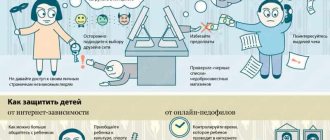Types of fraud on the Internet
Fraud has one feature that makes it difficult to investigate - in most cases, the victim, of his own free will, provides information to the criminals that leads to the loss of his money. Types of fraudulent activities in cyberspace:
- Online stores. A huge number of stores offer low prices on goods. This attracts people, they pay money for a virtually selected product. After the money arrives in the seller’s account, it disappears, leaving the buyer without money and goods. The second type of deception in an online store: instead of the declared item, a bad copy is sent by mail, cheaper and of worse quality.
- Creating copies of bank websites. The scammer who created this site invites the user by email or SMS to log in to it. When a user lands on a fake website, he logs into his personal account, revealing logins and passwords to access his accounts. Using this data, the fraudster empties the bank account.
- Hacking electronic wallets. This type of receiving and storing money has become popular in recent years. The fraudster can send a message about the operator’s loss of credentials with a request to send them again. After receiving this data, he will empty the wallet.
- Emails. A letter arrives in the mail with a message about the won valuable prize. To receive it, the winner must transfer a certain amount to the account specified in the letter.
- SMS message from the bank about account blocking. After this message they ask you to transfer money to unblock it.
- Fake airline websites. Prices that are too low, a request to transfer money to an electronic wallet, or a foreign bank account are points that should alert the buyer.
- Imaginary charitable purposes. A story appears online about a child who needs urgent surgery abroad. This is where the money is collected.
- Distant work. Some unscrupulous employers offer work from home with advance payment for organizational needs. Even after completing the proposed work, the contractor will not receive money for it and will waste his money and time.
The understanding that the possibilities of the Internet are limitless does not add to optimism. This means that scammers will come up with new schemes to deceive people.
In what cases can you sue?
You can go to court for any violations of rights and legitimate interests. In many cases, litigation can be avoided by using pre-trial defense options. For example, you can submit applications directly to the bank, draw up agreements, contact the financial ombudsman, or send a complaint to the Central Bank of the Russian Federation. But only by a court decision can you demand compulsory execution from the bank through the FSSP. Therefore, going to court is the most effective option for protecting rights.
You can sue the bank if you violate the terms of the contract or the rules for the provision of services
Citizens can file a claim in the magistrates' and district courts. Legal entities and individual entrepreneurs. as well as citizens, when applying for bankruptcy, submit applications to arbitration
Most often you can find court cases where the plaintiff is a bank. For example, this could be debt collection and penalties on loans. Bank clients are much less likely to go to court. We will discuss situations where filing a claim will help protect your rights below.
For loans
By signing a loan agreement, the borrower assumes obligations to repay the money with interest. At the same time, the borrower has the right to protect his interests if the bank violated the terms of the agreement or the law. Here are the most common reasons why you can sue a bank for a loan:
- when the terms of the loan agreement are unilaterally changed (for example, when the interest rate is increased. But when lending to individuals, such behavior by the bank is prohibited. The prohibition is stated in the law “On Consumer Credit (Loan)”;
- when challenging imposed services that resulted in an increase in the total cost of the loan. For example, banks used to like to charge clients fees for maintaining a loan account or for choosing a loan repayment method;
- when introducing fees not specified in the agreement (for example, for early repayment of a loan);
- when refusing to provide a credit or mortgage holiday, if the bank is obliged to do so by law (for example, a mortgage holiday can be obtained by force of law);
- when challenging the calculation of debt and interest under the contract;
- in case of refusal or obstacle to early repayment of the loan.
You cannot sue the bank for refusing to issue a loan. Approval or refusal of an application is the right of the bank. There are exceptions only for lending programs with government subsidies. For example, under the preferential mortgage program in 2021, the main lending conditions are determined by law.
Violations may be associated with the bank’s actions in the event of an overdue and repaid loan. For example, you can go to court for refusing to make changes to your credit history if the bank is obliged to do so. Before filing a claim, we recommend that you contact a lawyer to check the terms of the contract and the grounds for legal protection. If you do not have grounds to file a claim, you will only waste time and money.
In some cases, you can sue the bank for calls, SMS or other debt collection actions. There are restrictions on the number and time of these actions only for collectors. But if a bank employee bothers with calls not the debtor himself, but his relatives or acquaintances, then this is already a violation. For such actions, you can recover compensation for moral damage. True, even if the courts award such compensation, the amounts included in the decisions are ridiculous.
For the provision of banking services
A citizen who has entered into an agreement for servicing an account and card can file a complaint or lawsuit against the bank’s actions. The grounds for going to court may be:
- refusal to issue money from a deposit or account;
- refusal to issue the card itself;
- illegal blocking of cards and accounts, debiting funds from the account;
- unilateral reduction of the rate on a deposit or on the account balance, if this is not provided for in the agreement;
- illegal closure of an account or deposit;
- introduction of commissions on banking transactions or their overestimation;
- Bank error when transferring funds.
Even a one-time payment transaction is considered a banking service. For example, if you paid a fee, and a bank employee made a mistake when transferring funds, you can demand their return. If you refuse to return the money, you can recover it through the court.
For money fraud
In case of fraud, you need to contact the police. A typical example is the issuance of a loan by other persons using your documents or the theft of funds from an account. The bank also needs to report fraud, as an internal investigation is being conducted into the complaint.
Sometimes bank employees are involved in fraudulent activities, since all clients leave copies and scans of their documents - passports, INN, SNILS, etc. - at bank branches. And with the help of these copies, you can easily “pin” a person with a loan that the bank did not issue to him. In this case, you can recover damages through the court.
Bankruptcy of an individual
Phys. persons can go bankrupt through arbitration and the MFC. In this case, an application is submitted to the arbitration court with a request to be declared bankrupt. Therefore, the bank will not be a defendant, but a creditor in a bankruptcy case. This is important because in bankruptcy you cannot recover anything from the creditor.
When contacting the MFC, judicial procedures are not carried out at all. However, creditors have the right to file objections and demand that the case be referred to arbitration. The basis for such a requirement may be information about the debtor’s property, which became known after the end of the enforcement proceedings.
Where to report scammers
When faced with an online scam, the victim wonders where to go to get their money back. In this case, you should report:
- To the police. This type of offense is dealt with by a special unit of the Russian Ministry of Internal Affairs.
- To the technical support service of the payment system that carries out money transfers.
- In Roskomnadzor, which controls the activities of organizations providing services in the field of electronic technologies.
There is no point in trying to find scammers on your own. Since cheating on the Internet is a crime, it is the task of the police to find the criminals and bring them to justice.
How to get your money back and punish the scammer
The point of this article is that if you have already fallen for a scam and gave money to Uncle Vasya, then all is not lost, there is a chance to get your money back, or at least punish the offender. Yes, and punishing is also useful, so that, as they say, others do not fall for the trick.
Due to the huge number of scammers lately, as well as those who love easy money, making purchases over the Internet is quite a risky business, I decided to tell you several important aspects of how you can punish Internet scammers. You can proceed to action, or read just below the basics and no longer fall for scammers.
For example, if you are asked to make a transfer through the QIWI payment system, this should alert you. The reason for this is that through this system you will not get your money back in any way, and the system itself does not shun fraud and deception of users. Read more about this here.
Where to go to get your money back
To return money lost as a result of fraudulent actions, the victim can contact any police department and write a statement. This needs to be done as quickly as possible after losing money. An urgent response from the victim will allow prompt action to be taken. In this case, there is a possibility of returning the lost money. It is advisable to attach to the application the website address, printouts of written communications, the account number for the transfer, and the phone number from which the information came.
You can also leave a statement on the Ministry of Internal Affairs website, attaching screenshots of existing correspondence with the fraudster.
Important!
Even if the amount of damage is small, you should definitely file a report with the police.
What can and should be done before filing a lawsuit
Before going to court, you can use other defense options. In many cases, this will be more effective than waiting for the dispute to be resolved. Even if pre-trial settlement of the dispute does not bring results, it will help:
- collect evidence to go to court (for example, such evidence could be correspondence with a bank);
- resolve some controversial issues out of court (for example, the bank may agree to recalculate, unblock an account or refinance a loan at a reduced rate);
- show the court the good faith of the plaintiff, who tried to resolve the issue peacefully (for example, this will be important when collecting compensation for moral damage).
Is it possible to sue immediately after a violation is discovered? It depends on the subject of the dispute and the nature of the violations. For example, if the bank committed a violation of consumer rights, it is necessary to follow the claim procedure for resolving the dispute. Some violations require filing a complaint with the Financial Ombudsman. Therefore, we recommend that you consult with our lawyers before suing, for example, Sberbank or any other credit institution.
How much does a criminal case start?
The answer to the question of which article applies for fraud on the Internet is given by the Criminal Code of the Russian Federation. Article 159.6 provides for different types of punishment. For damage from 1000 to 2500 rubles, administrative punishment is provided in the form of a fine.
If we talk about the amount for which a criminal case is opened for fraud on the Internet, the minimum amount of damage is 2,500 rubles. The fraudster may be sentenced to imprisonment for at least 2 years, depending on the amount of damage and the circumstances of the crime. If unlawful actions are committed by a group of persons by prior conspiracy, the period of stay behind bars can be up to 10 years.
The main problem is small amounts
It is clear that due to the loss of small amounts no one will go to court, especially since it is often not entirely clear who should be the defendant, there is no agreement and payment documents, and, finally, even if the court decision is in favor of the plaintiff, there is almost no actually perform, that is, collect the amount due from the defendant. This state of affairs gives a free hand to many swindlers and puts potential buyers in an extremely vulnerable position.
Moreover, this situation negatively affects the business of those who conduct business honestly and fulfill all their obligations.
Therefore, I would like to talk in detail about really effective ways to monitor the fulfillment of certain obligations undertaken by Internet businessmen and force them to fulfill them if any problems arise.
How to avoid becoming a victim of scammers on the Internet
Employees of the Ministry of Internal Affairs recommend following the rules to protect yourself and your money:
- When turning to the services of an online store, choose a trusted supplier, pay attention to the duration of the site’s existence and its design. The price is too low compared to the existing average market level, the lack of a telephone number or legal address of the organization for feedback may indicate the seller’s dishonesty. Serious sellers will not ask to transfer money for goods to a phone account or e-wallet.
- Do not give your bank card details, passwords, or accounts to strangers, regardless of who the fraudster appears to be.
- If you receive a notification about a large win in a lottery in which you did not participate, ignore this notification and do not transfer money.
- When receiving messages from the bank, contact the bank's hotline and clarify the situation.
- If you receive a message about the need for a new registration on the website of the bank that services the account, do not try to register again. It is better to contact the bank and clarify the reason for the application.
- Purchase air tickets only on trusted, reputable sites. Flight numbers and directions can be double-checked on the official website of the carrier airline.
- Never open or download unknown programs or applications. They may contain paid subscriptions or viruses that give access to bank account and card data.
- Before helping a patient, contact your family and doctors, try to make sure their intentions are honest. Donate to a real child who really needs help.
Internet fraud is a crime associated with the theft of other people's funds. Like any illegal actions, it is punishable. Methods for identifying fraudsters are being improved, but at the same time, each of us must improve our information literacy, be more vigilant and judicious in relation to our property.
Someone else's contract
Some scammers receive loans using stolen documents. Others, using connections in banks, take money using copies of other people's passports. And it’s very easy to get such a copy today. After all, copies of our passports are taken everywhere, starting from the clinic at the place of residence and communication shops, ending with schools and all kinds of housing and communal services offices. Such criminals are not often, but they are still caught and sentenced. What should those who were their victims do with a debt in the bank that they did not do?
The Supreme Court of the Russian Federation spoke about this when it reviewed the results of a legal dispute between a citizen and a certain bank, which wanted to receive a loan issued to scammers from an innocent person. Considering that there are many victims of such scams, these clarifications can be extremely useful.
It all started with a lawsuit against a certain bank, which was brought to court by a citizen. A resident of the Voronezh region asked to recognize the loan agreement with this bank as not concluded. In court, the poor fellow said that the Liskinsky District Court of the Voronezh Region issued a decision in absentia, according to which it collected an unrealistic amount of debt from him - along with legal costs of almost 17 million rubles. The loan agreement was concluded, judging by the documents, in 2014.
The plaintiff explained to the court that he had never concluded such an agreement, he had never been to the city of Samara, in which the agreement was supposedly signed, and his salary was 15 thousand rubles and could not be compared with what was indicated in the agreement.
RG experts explain the legal aspects of the fight against fraud in the “Legal Consultation” section
The same Liskinsky District Court, after listening to the man’s arguments, agreed with him and declared the agreement not concluded. But the bank did not agree with this decision and appealed the district court’s verdict to the judicial panel for civil cases of the Voronezh Regional Court. The appeal overturned the district court's decision and made a new decision - to deny the citizen's claim and recognize the correctness of the bank's demands.
The plaintiff had to go to the Supreme Court of the Russian Federation and complain about the decision of the regional court.
The Judicial Collegium for Civil Cases of the Supreme Court of the Russian Federation studied this case and stated that the citizen’s complaint “subject to satisfaction”, and there were violations of the law in the decision of the appeal.
This is how the Supreme Court reviewed the case.
He saw that the district court, satisfying the citizen’s claim, referred to the opinion of an expert from the Voronezh Regional Center for Forensic Expertise of the Ministry of Justice of Russia. The expert wrote that he did not sign on behalf of the plaintiff on the copy of the loan agreement.
The regional court responded to this: the copy is not evidence at all, since “it does not meet the requirements of Article 71 of the Civil Procedure Code of the Russian Federation.” And in general, according to the regional judges, there is no evidence in the case that the copy of the contract that the plaintiff brought to court “corresponds to the original.” And the expert opinion does not comply with the requirements of the Law “On State Forensic Activities in the Russian Federation”, because “conducting research on a copy of the loan agreement is not allowed.”
The Supreme Court also saw that the appeal added new evidence to the case, which was provided by the investigation after the district court sided with the plaintiff. These were certified copies of the loan agreement and a copy of the cash order, which, according to the regional court, proved that the plaintiff took money from the bank.
The Supreme Court noted that its regional colleagues did not take into account important points when making their decision.
According to the law, the appeal, firstly, evaluates the evidence in the case. And secondly, additional evidence. But this additional evidence is accepted by the appeal when the person participating in the case explained why he could not bring it to the court of first instance. These must be compelling reasons beyond the individual's control, and the appeal must recognize those reasons as valid.
The regional court was obliged to issue a ruling that new evidence had appeared in the case.
They take copies of our passports everywhere, starting from the clinic and communication shops. Who can they get to?..
Clarifications on this matter were made by the Plenum of the Supreme Court (No. 13 of June 19, 2012). The Plenum said that the judge-reporter sets out the content of the new evidence and raises the question of whether to accept the new evidence. Moreover, this is done taking into account the opinions of those involved in the case. The one who brought it must prove why new evidence was not brought to the district court. And the appeal must decide whether new evidence was not provided to the district court for good reasons or not.
In the materials of our case, the Supreme Court saw that the defendant did not refer to new evidence, and the regional court, in violation of the law and without specifying motives, accepted new evidence. New evidence turned out to be a copy of a cash order for receiving millions, a copy of the certificate of ownership of an apartment and a car, which the plaintiff allegedly has. There was also a copy of a certificate from our hero’s place of work - a certain company. The Supreme Court emphasized that in violation of the law (Articles 35 and 57 of the Code of Civil Procedure of the Russian Federation), the plaintiff “was not provided with the right to familiarize himself with new evidence and present objections to it.”
It is clear from the case that new evidence was received by the regional court from the Samara region police. The Voronezh regional court did not examine them and did not assess whether this evidence was admissible. The appeal was simply limited to listing the documents that appeared. And our hero argued in court that he had never worked in that strange company that was named in the document, and he did not have the income indicated in the certificate, and he also did not have this apartment or car, a loan I didn’t ask and I didn’t receive money.
The Supreme Court reminded: according to the law (Article 71 of the Code of Civil Procedure), original documents are presented when the case cannot be resolved without the originals or when the copies are different. Our plaintiff provided the court with copies, the correspondence of which to the original was not disputed. While calling the expert’s conclusion “inadequate evidence,” the regional court did not say which provisions of the law were violated by the expert. The local court, according to the Supreme Court, did not take into account that the law does not prohibit handwriting examination of copies and there is no prohibition in the law for the court to use such an examination. The high court also added: the question of the suitability of samples for examination by experts, as well as the question of the methodology for conducting the examination, is the competence of the one who conducts the examination.
According to the Supreme Court, his Voronezh colleagues themselves should have asked the police of the Samara region for a genuine loan agreement, so that there would be no doubt. But the regional court did not use these procedural powers. According to the Supreme Court, this indicates “the court’s evasion of its duty to fully and comprehensively establish the circumstances of the case.”
The regional court will have to reconsider the claim.
○ What is indicated in an application to law enforcement agencies?
The application is drawn up in free form indicating:
- Details of the recipient and applicant.
- The essence of the appeal (description of the situation of loss of property).
- Indication of legislative norms (Article 159 of the Criminal Code of the Russian Federation).
- Clarification that they are familiar with the punishment for giving knowingly false testimony.
- List of applications.
- Date, signature.
The application should be accompanied by all available evidence of the unlawful act (payment checks, transfer receipts, etc.)
○ Methods of fraud.
Criminals invent new ways of deception every day, but there are methods that have been known for a long time. Knowing about them, you can protect yourself from some types of fraud that occur most often.
✔ “Charitable” events and fundraisers.
This version of the scam uses two human qualities: mercy and laziness. The first determines the very possibility of receiving money from a person, the second determines the risk of verifying information. Therefore, the number of false advertisements to raise funds for treatment, assistance to war victims and other life goals is steadily growing. Unfortunately, most of them are not true, so before transferring money to someone's account, it is worth checking the recipient. Signs of fraud are:
- Receipt of money by an individual - if you are asked to transfer finances to a legal entity's address, this reduces the risk of fraud because it is not difficult to verify the existence of the fund.
- The inability to check up on a patient is the most common scam, when they take a pitiful photo, add an equally pitiful text and start counting money. Therefore, it is very important that you can get real information about whose needs you are giving money to.
- There is no problem when they ask for money for the treatment of a child who is actually healthy or initiate a fundraiser due to poverty, although in reality everything is not so bad.
- Lack of communication between the collector and the recipient of funds - when the fraudster does not want to make contact, give explanations, etc.
- Lack of treatment is the most cynical scheme, when money is collected for a person who is not eligible for medical care.
Despite the number of methods of fraud, situations when a person really needs funds happen very often. Therefore, there is no need to lose confidence in such fees completely. Simply, before transferring funds for such needs, you should carefully check the information received.
✔ Hacking a social network account and asking for help with money.
This is another common method of fraud, when a message comes from the page of a friend or relative to help with a certain amount of money. Often recipients of such mailings do not check the information and immediately transfer money, especially if the person is close enough.
To protect yourself from such a scam, before sending money, contact the owner of the page and clarify the request. The likelihood that the person did not even know about such a request is quite high.
✔ “Mirror” of a popular website or online store.
This method involves creating a copy of a store or bank (an organization associated with financial transactions). Entering your card details results in the information being read and the possibility of large amounts of funds being charged or a copy of your card being made that can be used by thieves.
To avoid becoming a victim of this situation, carefully check the site on which you enter financial information. The grounds for suspicion of fraud are:
- Name (address starts with http instead of https, or one letter is missing/replaced in the name).
- The lifespan of the page, if it was created recently, most likely it is a “mirror”.
Protection against this type of fraud is to thoroughly check all provided information before payment or transfer.
✔ Winning a prize or receiving an inheritance.
Even if the specified amount of winnings or inheritance is extremely attractive, do not forget to be careful. Before clicking on the links provided or providing information about yourself, carefully consider what sweepstakes you participated in and what the likelihood of receiving an inheritance from a distant relative is. In the second case, it is unlikely that they would contact you via SMS or email, so rule out this option immediately.
✔ Payment for delivery of the won prize.
Even if you do win a prize, shipping is usually paid for by the donor. Otherwise, payment for delivery will be discussed at the drawing stage. And even if the first two indicators are excluded, delivery of any winnings is paid upon receipt by mail. Therefore, you should not believe such messages either.










